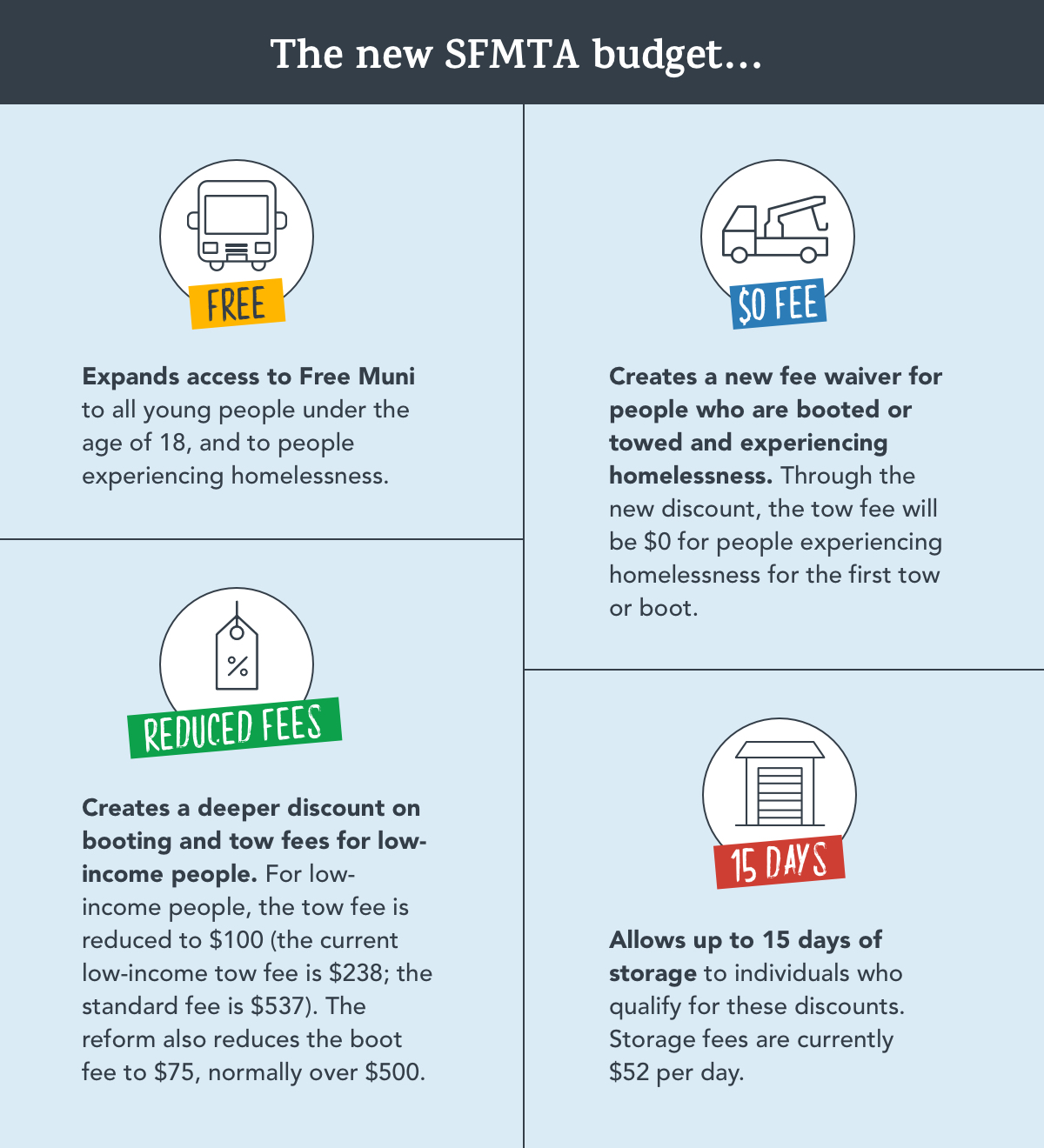When MiQueesha’s car was towed, she lost more than just her transportation. MiQeesha was one of over 1,800 San Franciscans living in their cars, a number that is unfortunately increasing. As MiQueesha told the San Francisco Municipal Transportation Agency Board of Directors a few weeks ago, “I couldn't afford the tickets, and then I lost my registration. And then I couldn't register my car so I'm getting more tickets. And then I lost my job. It's like a downward spiraling effect.”
MiQueesha is not alone. The cost of a tow in San Francisco is the most expensive in the country, starting at $537 before the added price of tickets and storage fees. Even with current discounts available for low-income people, the cost is still often out of reach. Approximately ten percent of towed cars are never retrieved, presumably because people cannot afford to get them out. We have heard from community organizations and residents that when people cannot come up with the money to retrieve their car after it is towed, their situation goes from bad to worse. They lose not only their largest asset, but also often their employment and sometimes their shelter. “It started a never-ending cycle of debt and poverty,” said MiQueesha. “If I was able to keep the car, I would have been able to keep my job.”
We have also increasingly heard from community groups about the importance of access to public transportation for people experiencing homelessness and living in deep poverty. The community organizations we work with have shared that many of their clients either do not take the bus, or risk fare evasion citations and ride without paying because they cannot afford to pay. Even the current discounted monthly fare of $40 represents more than a third of many of their clients' monthly income.
On Tuesday, the SFMTA adopted a new budget, along with a range of equity reforms for low-income San Franciscans. The budget:

We know that families who were already struggling will be hit the hardest by the layoffs, wage cuts, and health issues stemming from the pandemic. People’s limited financial reserves are now more depleted. These reforms will make a significant difference for people who need them: low-income San Franciscans and people experiencing homelessness.
Thank you to the SFMTA and dozens of community-based organizations for their work to push these reforms forward including GLIDE, Community Housing Partnership, Bay Area Legal Aid, the Coalition on Homelessness, Lawyers’ Committee for Civil Rights, and many others.
Yours in Financial Justice,
Anne & Christa
